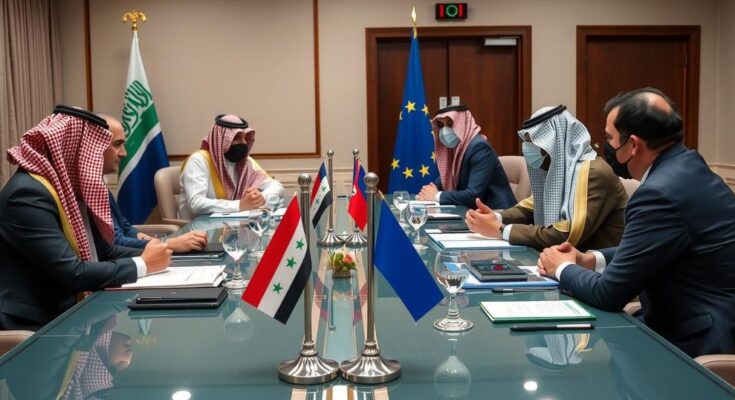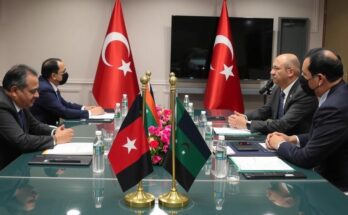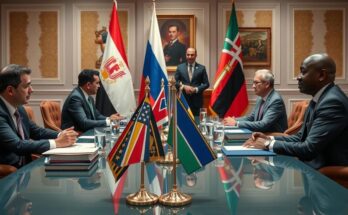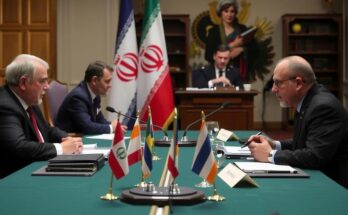Saudi Arabia has urged for the lifting of sanctions imposed on Syria during talks with regional and EU diplomats, highlighting the need for humanitarian aid and reconstruction following years of conflict. Key officials discussed the impact of sanctions on Syria’s recovery, with Saudi Arabia emphasizing its willingness to support the country’s future amid ongoing humanitarian needs and political tensions.
On January 13, 2025, Saudi Arabia advocated for the lifting of sanctions imposed on Syria during discussions with diplomats from West Asia and Europe in Riyadh. Saudi Foreign Minister Prince Faisal bin Farhan emphasized that such sanctions impede the aspirations of the Syrian populace for development and recovery. The talks, involving officials from Arab countries, Turkiye, France, the EU, and the UN, aimed to shape Syria’s future following its protracted civil conflict.
The meeting occurred against a backdrop of ongoing humanitarian crises, where over half a million Syrians have perished and millions remain displaced. The Gulf kingdom is keen on enhancing its influence in Syria post-regime shift, particularly after the Islamist-led factions surged to power. The new leader, Mohamed al-Jolani, who leads the faction that dethroned Bashar al-Assad, is advocating for a change in sanctions policy.
Discussion points included the current sanctions framework, with officials noting that Western sanctions, instituted largely due to the Assad regime’s violent suppression of dissent since 2011, have significantly affected both governance and humanitarian efforts in Syria. Saudi Arabia, having cut ties with Assad’s government in 2012, is now reconsidering its position in light of recent developments and has engaged in humanitarian efforts, providing food and medical assistance.
As Saudi Arabia takes on a leadership role in coordinating regional support for Syria, it aims to promote stability and facilitate reconstruction. However, analysts like Anna Jacobs from the Arab Gulf States Institute pose questions regarding the commitment of the kingdom to long-term support given the continuous sanctions and the complex political landscape. This evolving situation emphasizes the necessity for diplomatic strategies that align with humanitarian goals, such as ensuring essential services and fostering an environment conducive to the return of refugees.
The article discusses recent diplomatic initiatives led by Saudi Arabia concerning the potential easing of sanctions on Syria, a country that has faced extensive sanctions since the onset of the civil war in 2011. The backdrop includes a protracted humanitarian crisis resulting from over 13 years of conflict, with immense casualties and displacements reported. Saudi Arabia’s changing stance towards Syria marks a significant shift in regional politics, particularly after the recent power transition initiated by Islamist-led factions.
In conclusion, Saudi Arabia’s calls for sanctions relief on Syria reflect a strategic pivot aimed at enhancing influence in the region while addressing immediate humanitarian needs. The support for Syria’s reconstruction amidst existing sanctions underscores the complex interplay between political considerations and humanitarian assistance. The outcome of these discussions will depend on the Syrian leadership’s progress in governance reforms and its ability to create a stable environment for its citizens and returning refugees.
Original Source: www.thehindu.com




